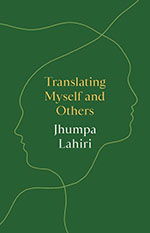At a lecture1, Issac Bashevis Singer—the Yiddish Nobel Prize-winning author—was once asked: ‘What would you do if you were to meet God face to face?’ And Singer’s answer was: ‘I would ask him to collaborate with me on some translations. I would not trust him to do it himself.’ In other words, Singer is explicitly foregrounding the overarching role of translation in a writer’s literary journey; the necessity of collaborative translation, and the baggage of trust deficit that translators carry historically, among others. In her new book Translating Myself and Others, Jhumpa Lahiri, over a course of ten essays, aided by an Introduction and an Afterword, addresses all such old questions, including the ones raised by Singer. Not only that (without providing definitive answers), but she also asks (new) questions on—language and belonging, translation and transformation, translating self versus translating others—arising from her own predicament of juggling between Italian and English as a writer, not to mention Bengali—a language that she speaks and understands.
As a child of immigrants, Jhumpa Lahiri never had an exclusive relationship with any one language. In fact, the problem of not belonging is a predominant theme in her literary works as well. The experience of straddling the twin worlds of Bengali and English—her mother tongue and the tongue of her education respectively—not only created a linguistic dilemma but a hyphenated state of being. As a linguistic orphan, Lahiri sets out to choose a language of her own. Consequently, after the publication of her novel Lowland in 2013, she stopped writing in English and took up Italian to ‘feel free’. In ‘Why Italian?’

